Have you ever wondered which Irish holidays are most significant or which holidays the Irish observe?
Many of us are familiar with St. Patrick's Day, but what other important holidays are part of Ireland's rich culture and heritage?
Today I'm sharing the most significant holidays celebrated in the Emerald Isle, from Saint Paddy's Day to Shrove Tuesday.
Let's dive in and learn more about Irish traditions and culture.
Table of Contents
Saint Patrick's Day
Saint Patrick's Day is probably the most well-known Irish holiday. Over the past hundred and fifty years, it has grown into a worldwide celebration of Irish culture, characterized by wearing green clothes and consuming green beer. And displaying shamrocks as an exuberant celebration of Irish culture.
You will find many parades, such as the Dublin parade and many other Irish parades taking place in many corners of the world on March 17th.

So, who is St. Patrick?
Saint Patrick played an essential role in Irish history, even though he wasn't even born in Ireland. His birthplace was in Britain. He was kidnapped by Irish pirates when he was only 16 years old. He was enslaved for a period of 6 years before escaping back to his homeland. While there, his faith grew deeper and deeper over time.
He settled on returning to Ireland to work as a missionary, with the goal of bringing Catholicism to Ireland.
The most famous legend associated with Saint Patrick is the way in which he explained the concept of the Holy Trinity. Using a shamrock plant which is a 3-leaf clover, he explored the concept of three beings in one.
The Celts loved to view the world in threes. Patrick had chosen the best method to convert them to Christianity, and he eventually became known as the patron saint of Ireland.
In fact, it was centuries after his death that a day of remembrance was created on the anniversary of his death. In the 9th and 10th centuries, the Irish in Europe celebrated Saint Patrick's Feast Day.
Here are some interesting ramblings about Saint Patrick and his significance in Irish culture.
Where To Celebrate Paddy's Day In Ireland
Did Saint Patrick Really Banish All The Snakes From Ireland?
The Religious Significance and History of Croagh Patrick
Shrove Tuesday
Shrove Tuesday or Pancake Tuesday falls on the day before Ash Wednesday, just before the beginning of Lent. Before Lenten fasting begins, pancakes are eaten on this day, and other traditional activities occur worldwide.
This is not an official bank holiday, but old Irish traditions are observed to this very day. Pancakes are flipped all over the country.

Ireland is no exception; Pancake Tuesday and Shrove Tuesday are different names for the same day. Other names include Mardi Gras, Fat Tuesday, or Grease Tuesday in French.
Today Shrove Tuesday is primarily a religious holiday observed by the following Christian groups - Catholics, Episcopalians, Lutherans, and Methodists.
Christmas
In Ireland, both Christmas Eve and Christmas Day are celebrated on December 24th and 25th.
Irish Christmas traditions are deeply engrained in Irish culture, and some old traditions have interesting origins.
Christmas is an extraordinary time of year in many parts of the world. The same holds true in Ireland, where age-old traditions continue to be honored.
Irish people look forward to Christmas, especially after the dark, short days of November and December.

Irish city streets are illuminated and covered in the sparkle of light. Christmas music fills the air with wonder and joy.
Street vendors all over Dublin tempt you with cheap batteries and questionable chocolate, and the last of the wrapping paper.
The Christmas season is a magical time. You can expect to see Christmas lights, decorations, Christmas cribs, and of course, Christmas trees in the homes of Irish families.
Saint Stephen's Day
December 26th is officially called Saint Stephen's Day in Ireland, but in some rural parts of the country, it is known as Wren Day.
This is a day of great festivities in southern counties, especially in Counties Cork and Kerry. Locals dress up in straw costumes and parade around town or the countryside. They sing and dance and ask for donations of money, food, or drink from their audiences.
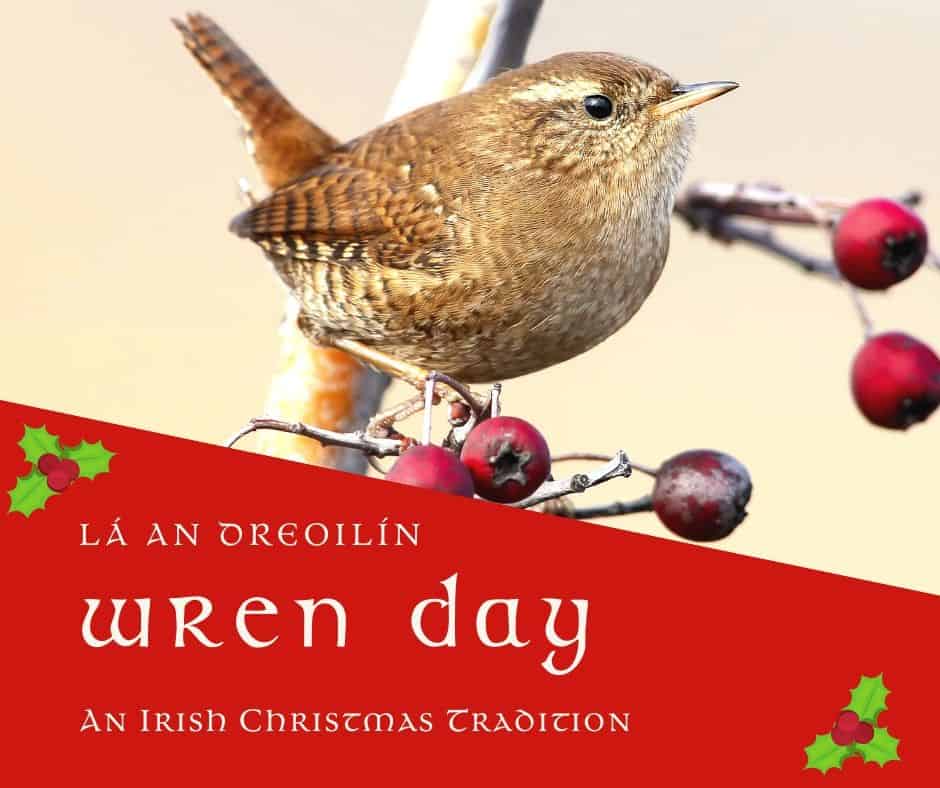
Wren Day is a unique part of our ancient Irish heritage, especially in rural parts of the country.
The day after Christmas is called Lá an Dreoilín in the Irish language. This is pronounced phonetically as law on droh-leen. It quite literally means the day of the wren.
Celebrating Wren Day continues in the town of Dingle in County Kerry. It was celebrated nearly all over Ireland in years gone by. The only exception was parts of northern Ulster where Celtic heritage held less sway.
Bealtaine - May Day
The first day of May was a day of celebration for the Celtic people of ancient Ireland.
It was known as the day of the great Festival of Fire, or Bealtaine, marking the beginning of summer on the Celtic calendar.
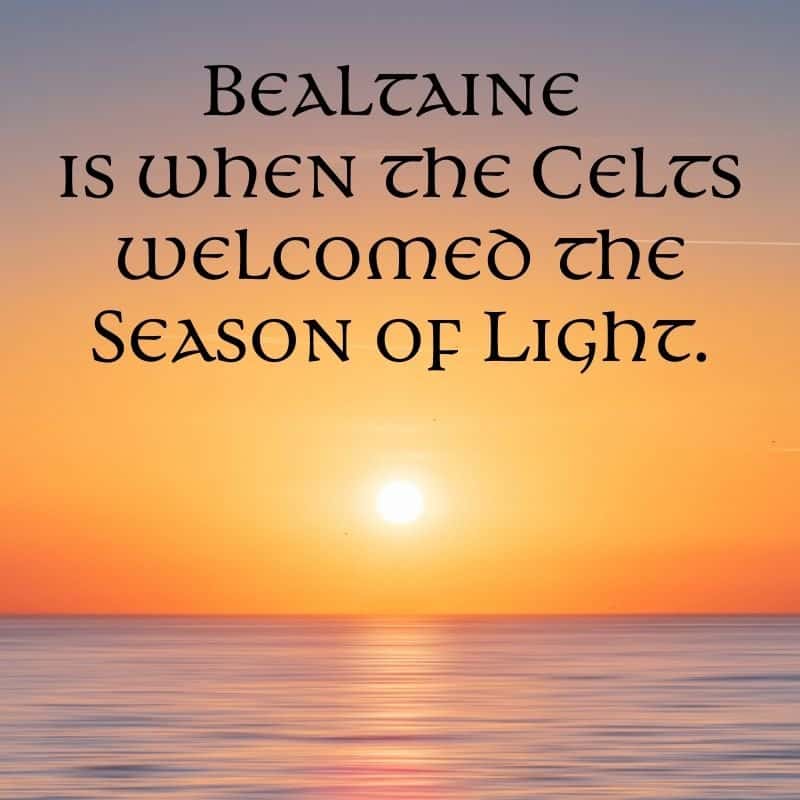
May day's origins can be found in the Irish celebration of Bealtaine when the Celts greeted the long-awaited summer. Bonfires were lit all over Ireland on May Day in years gone by.
In modern Ireland, Bealtaine is no longer celebrated on a large scale, but it is a significant day from our Celtic history and heritage.
Samhain or Halloween
Halloween originated in Ireland and is still celebrated to this very day. Samhain (pronounced sow-in) is the old Celtic Festival that evolved to become Halloween.
Did you know the Irish brought Halloween to America when they emigrated en masse during the 19th century?
From Jack O'Lanterns to trick or treating, we can thank the Irish for these fun Halloween traditions.
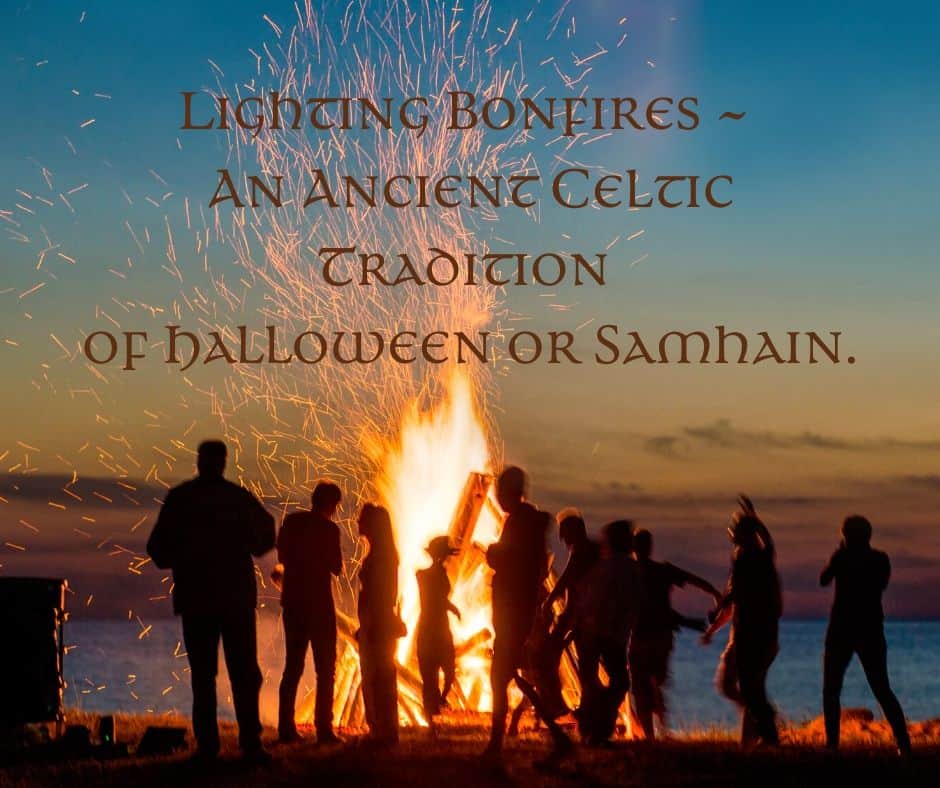
In Ireland a bank holiday is scheduled for the last Monday of October, so the last day of the month when Halloween is celebrated, does not always fall on this day off.
However, Irish schools close for the whole of the last week of October. It is the autumn mid-term break and it always coincides with Halloween in Ireland.
This means Irish children usually have the day after Halloween off, so they can trick or treat and celebrate past their regular bedtimes.
Good Friday
Good Friday usually falls in April, but some years it occurs in late March. In Ireland, this day was traditionally dedicated to penance, fasting, and prayer. Some Irish Catholics fasted completely until midday.
Then at noon, they only broke their fast by eating a piece of dry bread washed down with three sips of cold water. Each drink was taken to honor the Holy Trinity.
Hot cross buns are sold all over Ireland, and are closely associated with Good Friday.

Traditionally, there is no Mass celebrated on Good Friday in Roman Catholic churches worldwide. However, at 3 pm, the faithful often attends the church for a liturgy that focuses on Christ's passion and death. Church bells stay silent, and Altars remain bare.
Good Friday has not been designated as an official public holiday in Ireland, but banks and pubs are closed.
Easter Sunday and Monday
Easter Sunday and Monday are significant holidays in Ireland.
Easter in Ireland is a time for people to come together when we take time to reflect on renewal, resurrection, family, and horses.

Yes, I did say horses. Easter Monday is a national holiday and a great day for horse racing in Ireland.
A day at the races is an integral part of Irish culture. On the day after Easter, many Irish people head to the racecourse.
New Years Eve
The Irish celebrate New Year's Eve much like they do in the United States. They attend parties and events that typically involve some form of countdown to midnight.
Did you know that marking the beginning of each new year on January 1st is a relatively new custom in Ireland? Believe it or not, this practice is less than 300 years old.

Until recent years New Year's Eve and New Year's Day celebrations were very subdued in Ireland. The Irish national folklore archive does not hold much evidence of these dates being a cause for significant festivities in centuries past.
For our Celtic forebears the festival of Samhain was the beginning of the New Year.
Bonus Holiday - Saint Brigid's Day
The ancient Celtic Festival of Imbolc falls on or around February 1st each year, the date also known as Saint Brigid's Day. It marks the beginning of spring on the Celtic calendar.
This day has been a significant feast day for many Irish people over the years. Saint Brigid is one of the three patron saints of Ireland.
In the past few decades, there has been an increased awareness and acknowledgment of the contributions to Irish and Celtic heritage by Saint Brigid and her namesake, the Goddess Brigid, .

To acknowledge the importance of Irish women and their contributions to society, the Irish government has created a new Irish holiday.
Starting in 2023, the first Monday of February will be a bank holiday in Ireland to mark the arrival of spring and to commemorate Saint Brigid.
Irish Bank Holidays
Here's a quick list of the official holidays in the Republic of Ireland, when banks and some businesses close.
It's a good idea to familiarize yourself with these dates when planning a trip to Ireland.
| New Year's Day | January 1st or the 1st Monday of January |
| Saint Brigid's Day | First Monday of February (starting 2023) |
| Saint Patrick's Day | March 17th |
| Easter Monday | Monday after Easter Sunday (varies yearly) |
| May Bank Holiday | First Monday of May |
| June Bank Holiday | First Monday of June |
| August Bank Holiday | First Monday of August |
| October Bank Holiday | Last Monday of October |
| Christmas Day | December 25th Next Monday if falls at the weekend |
| Saint Stephen's Day | December 26th Next Monday or Tuesday if falls at the weekend |
You'll notice these dates are very different to American holidays with no 4th of July, or Thanksgiving, to name but a few exceptions.
There are a few more significant days of celebration in Ireland, which are held along with the rest of the world.
Valentine's Day
Saint Valentine's Day is celebrated in Ireland, but not on the same scale as in America.
Admirers sometimes post unsigned Valentine's Day cards to those they like.
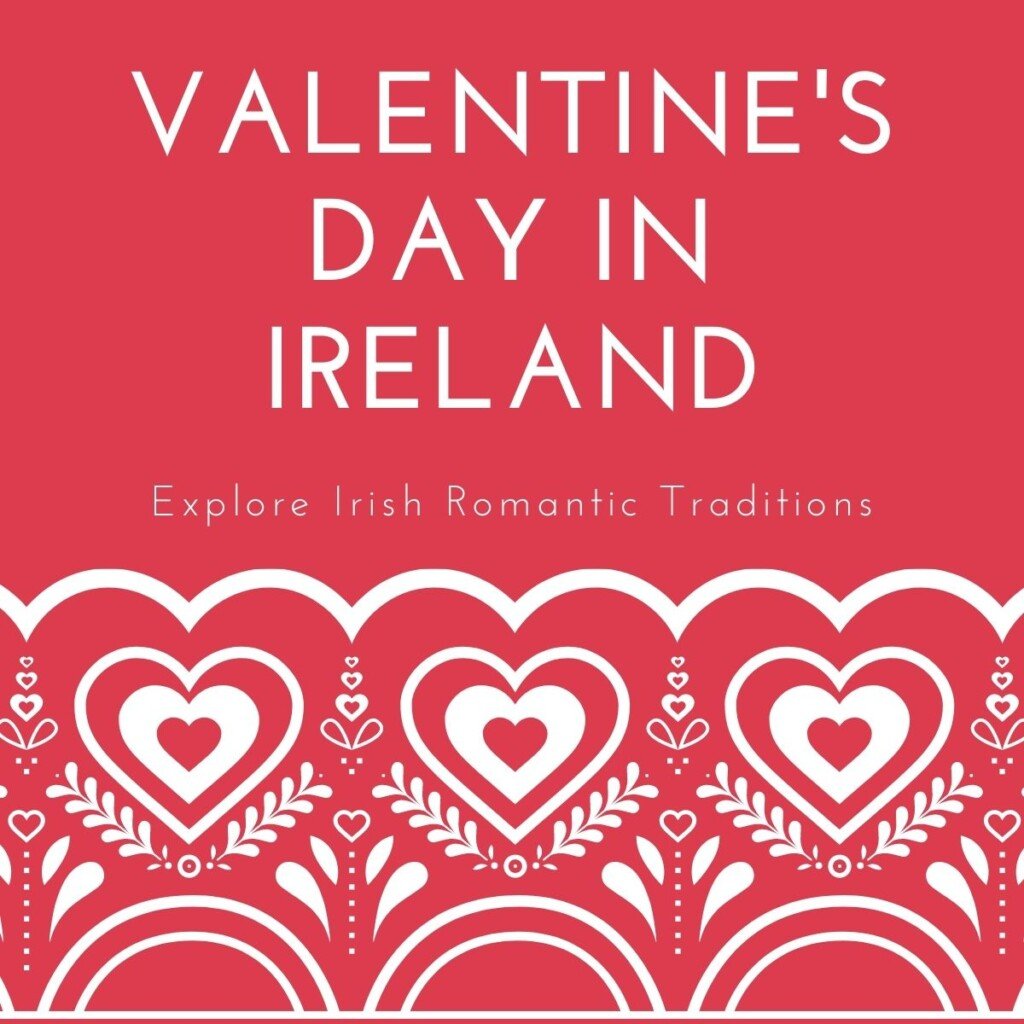
Some couples celebrate by eating out at a fancy restaurant. And others, pay no attention to this holiday at all, despite the fact Saint Valentine may actually be buried in Dublin.
Mother's Day
Mother's Day is celebrated in March in Ireland, and not on the second Sunday of May, as in the United States. Mothering Sunday tradtionally falls on the fourth Sunday of Lent, so the actual date varies year by year.

In years gone by this was a day when girls who worked as domestic servants were given a day off work to visit their mothers. This tradition was observed all over the British Isles. It was transformed into Mother's Day in the last century.
Father's Day
Father's Day is celebrated on the third Sunday of June, just like in the rest of the world including America. Irish fathers are recognized and spoiled on this day too.
If you're interested in learning about Irish culture, join my Facebook community.
I share everything Irish, including traditions, language, recipes, and more!

Slán agus beannacht,
(Goodbye and blessings)
Mairéad -Irish American Mom
Pronunciation - slawn ah-gus ban-ock-th
Mairéad - rhymes with parade
Holidays
- A Candle In The Window - An Irish Christmas Tradition
- Easy Pumpkin Carving - Book Giveaway
- Lessons I Learned From My Irish Dad
- Old Fashioned Easter Biscuits
Irish Traditions
- Igniting Tradition - The Blaze of Halloween Bonfires
- Irish Family Crests: An Easy Step by Step Guide
- Everything You Need to Know About Irish Pub Culture
- Learning About the Irish Reel Dance



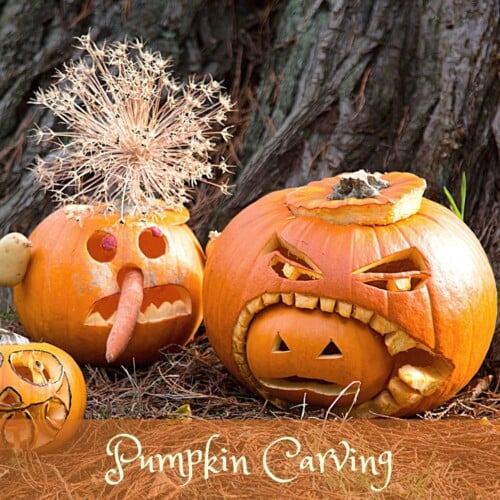










Leave a Reply